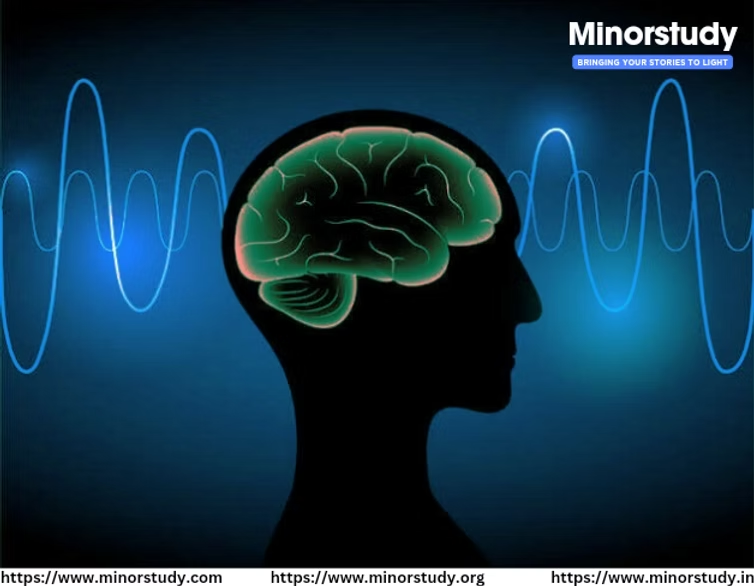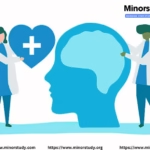Psychiatry: An Overview
Psychiatry is a branch of medicine that focuses on diagnosing, treating, and preventing mental health conditions and disorders. It involves the understanding of emotional, psychological, and behavioral disturbances, as well as the application of treatments to alleviate symptoms and improve the mental well-being of individuals.
Key Areas of Psychiatry
Area | Description |
General Psychiatry | Deals with the diagnosis and treatment of common mental health conditions such as depression, anxiety, and schizophrenia. |
Child and Adolescent Psychiatry | Focuses on diagnosing and treating mental health conditions in children and adolescents. |
Forensic Psychiatry | Intersection of psychiatry and law, where psychiatrists assess mental health issues in legal contexts. |
Geriatric Psychiatry | Addresses mental health issues specific to older adults, such as dementia and age-related disorders. |
Addiction Psychiatry | Specializes in treating individuals with substance abuse or addiction-related disorders. |
Psychosomatic Medicine | Examines the interaction between psychological and physical health, focusing on how mental health affects physical conditions. |
Psychiatric Neurology | Focuses on the neurological aspects of mental illness, often treating conditions like brain injuries, epilepsy, or Parkinson’s disease. |
Common Psychiatric Disorders
Disorder | Description |
Depression | A mood disorder characterized by persistent feelings of sadness, loss of interest, and hopelessness. |
Anxiety Disorders | Includes generalized anxiety disorder, panic disorder, and social anxiety disorder. |
Bipolar Disorder | Characterized by extreme mood swings, including periods of mania (high energy) and depression. |
Schizophrenia | A chronic condition that affects a person’s ability to think, feel, and behave clearly. |
Obsessive-Compulsive Disorder (OCD) | Involves unwanted repetitive thoughts (obsessions) and behaviors (compulsions). |
Post-Traumatic Stress Disorder (PTSD) | A mental health condition triggered by experiencing or witnessing a traumatic event. |
Eating Disorders | Includes anorexia nervosa, bulimia nervosa, and binge eating disorder. |
Personality Disorders | Involves enduring patterns of behavior and thought that deviate significantly from societal expectations (e.g., borderline, narcissistic). |
Attention-Deficit/Hyperactivity Disorder (ADHD) | Characterized by symptoms of inattention, hyperactivity, and impulsivity. |
Treatments in Psychiatry
Treatment Type | Description |
Psychotherapy (Talk Therapy) | A broad term for different therapeutic techniques aimed at improving mental health, such as Cognitive Behavioral Therapy (CBT), Dialectical Behavior Therapy (DBT), and psychodynamic therapy. |
Medications | Includes antidepressants, antipsychotics, mood stabilizers, and anti-anxiety medications. |
Electroconvulsive Therapy (ECT) | A medical treatment where electric currents are passed through the brain to treat severe mental illnesses, especially depression. |
Transcranial Magnetic Stimulation (TMS) | A non-invasive procedure that uses magnetic fields to stimulate nerve cells in the brain, commonly used for depression. |
Hospitalization | In severe cases of psychiatric disorders, patients may be hospitalized for intensive care and treatment. |
Lifestyle and Social Support | Addressing lifestyle factors, like diet and exercise, along with family and community support systems. |
Key Psychiatric Treatments and Procedures
Procedure/Medication | Description |
Cognitive Behavioral Therapy (CBT) | A type of psychotherapy that helps individuals identify and challenge negative thought patterns and behaviors. |
Medications (Antidepressants, Antipsychotics, etc.) | Prescribed to manage symptoms of various mental disorders like depression, anxiety, schizophrenia, etc. |
Electroconvulsive Therapy (ECT) | A procedure used for severe mental illnesses, particularly when other treatments have failed. It involves the use of electric currents to stimulate the brain. |
Family Therapy | Therapy that involves family members to improve communication and resolve conflicts related to a patient’s mental health. |
Support Groups | Organized groups where individuals with similar experiences (e.g., addiction, PTSD) can support each other. |
Mindfulness and Meditation | Techniques used to manage stress and improve emotional regulation through mindfulness practices and relaxation exercises. |
Educational Path to Becoming a Psychiatrist
Undergraduate Degree: Typically in biology, psychology, or pre-medical studies.
Medical School: Attending a recognized medical school to earn a medical degree (MD or DO).
Residency Training: A psychiatric residency program that involves specialized training in mental health.
Fellowship (Optional): Additional training in specific areas of psychiatry, such as child psychiatry or addiction psychiatry.
Board Certification: Psychiatrists can become board-certified by passing an exam, which demonstrates their expertise in the field.
Key Concepts in Psychiatry
Diagnosis: Psychiatrists assess symptoms, medical history, and may perform diagnostic tests (e.g., psychological assessments, brain imaging) to diagnose mental disorders.
Biopsychosocial Model: This model considers biological, psychological, and social factors in understanding and treating mental health conditions.
Mental Health Stigma: The societal stigma surrounding mental health issues can prevent individuals from seeking help, making awareness and education crucial.
Psychiatric Interventions: Combining various treatments, including therapy and medications, tailored to individual needs to improve mental health.
Importance of Psychiatry in Healthcare
Prevention of Mental Health Crises: Timely intervention can help prevent the escalation of mental health issues into crises.
Improves Quality of Life: Effective psychiatric treatment can help individuals manage chronic mental health conditions, allowing them to live fulfilling lives.
Supports Holistic Health: Mental health is integral to overall well-being; psychiatry focuses on enhancing both psychological and physical health.
Addresses Stigma: Psychiatry works to reduce the stigma surrounding mental health, promoting understanding and acceptance in society.
Table of Psychiatric Disorders and Common Treatments
Disorder | Treatment Options |
Depression | Antidepressants, Cognitive Behavioral Therapy (CBT), and psychotherapy. |
Anxiety Disorders | Antianxiety medications, CBT, and exposure therapy. |
Bipolar Disorder | Mood stabilizers (lithium), antipsychotics, and psychotherapy. |
Schizophrenia | Antipsychotic medications, psychotherapy, and social support. |
Obsessive-Compulsive Disorder (OCD) | SSRIs (selective serotonin reuptake inhibitors), CBT, and exposure therapy. |
Post-Traumatic Stress Disorder (PTSD) | Trauma-focused therapy, medications (antidepressants), and support groups. |
Eating Disorders | Nutritional counseling, therapy, and medical interventions. |
Attention-Deficit/Hyperactivity Disorder (ADHD) | Stimulant medications (e.g., methylphenidate), behavioral therapy, and educational support. |
Conclusion
Psychiatry plays a vital role in managing mental health conditions, improving patients’ lives, and reducing the stigma surrounding mental illness. With advances in diagnostic techniques, therapeutic approaches, and medications, psychiatry continues to evolve, offering better outcomes for individuals experiencing mental health challenges.









https://cashcallgirls.com
https://achalpur.cashcallgirls.com
https://adoni.cashcallgirls.com
https://agartala.cashcallgirls.com
https://agra.cashcallgirls.com
https://ahmedabad.cashcallgirls.com
https://ahmednagar.cashcallgirls.com
https://aizawl.cashcallgirls.com
https://ajmer.cashcallgirls.com
https://akola.cashcallgirls.com
https://alappuzha.cashcallgirls.com
https://aligarh.cashcallgirls.com
https://alwar.cashcallgirls.com
https://amaravati.cashcallgirls.com
https://ambala.cashcallgirls.com
https://ambarnath.cashcallgirls.com
https://ambattur.cashcallgirls.com
https://amravati.cashcallgirls.com
https://amritsar.cashcallgirls.com
https://amroha.cashcallgirls.com
https://anand.cashcallgirls.com
https://anantapur.cashcallgirls.com
https://arrah.cashcallgirls.com
https://asansol.cashcallgirls.com
https://aurangabad.cashcallgirls.com
https://avadi.cashcallgirls.com
https://badlapur.cashcallgirls.com
https://bagaha.cashcallgirls.com
https://baharampur.cashcallgirls.com
https://bahraich.cashcallgirls.com
https://bally.cashcallgirls.com
https://baranagar.cashcallgirls.com
https://barasat.cashcallgirls.com
https://bardhaman.cashcallgirls.com
https://bareilly.cashcallgirls.com
https://barshi.cashcallgirls.com
https://bathinda.cashcallgirls.com
https://beed.cashcallgirls.com
https://begusarai.cashcallgirls.com
https://belgaum.cashcallgirls.com
https://bellary.cashcallgirls.com
https://bengaluru.cashcallgirls.com
https://berhampur.cashcallgirls.com
https://bettiah.cashcallgirls.com
https://bhagalpur.cashcallgirls.com
https://bhalswa-jahangir-pur.cashcallgirls.com
https://bharatpur.cashcallgirls.com
https://bhatpara.cashcallgirls.com
https://bhavnagar.cashcallgirls.com
https://bhilai.cashcallgirls.com
https://bhilwara.cashcallgirls.com
https://bhimavaram.cashcallgirls.com
https://bhind.cashcallgirls.com
https://bhiwandi.cashcallgirls.com
https://bhiwani.cashcallgirls.com
https://bhopal.cashcallgirls.com
https://bhubaneswar.cashcallgirls.com
https://bhusawal.cashcallgirls.com
https://bidar.cashcallgirls.com
https://bidhan-nagar.cashcallgirls.com
https://bihar-sharif.cashcallgirls.com
https://bijapur.cashcallgirls.com
https://bikaner.cashcallgirls.com
https://bilaspur.cashcallgirls.com
https://bokaro.cashcallgirls.com
https://bulandshahr.cashcallgirls.com
https://burhanpur.cashcallgirls.com
https://buxar.cashcallgirls.com
https://chandigarh.cashcallgirls.com
https://chandrapur.cashcallgirls.com
https://chapra.cashcallgirls.com
https://chennai.cashcallgirls.com
https://chittoor.cashcallgirls.com
https://coimbatore.cashcallgirls.com
https://cuttack.cashcallgirls.com
https://daman.cashcallgirls.com
https://danapur.cashcallgirls.com
https://darbhanga.cashcallgirls.com
https://davanagere.cashcallgirls.com
https://dehradun.cashcallgirls.com
https://dehri.cashcallgirls.com
https://delhi.cashcallgirls.com
https://deoghar.cashcallgirls.com
https://dewas.cashcallgirls.com
https://dhanbad.cashcallgirls.com
https://dharmavaram.cashcallgirls.com
https://dharwad.cashcallgirls.com
https://dhule.cashcallgirls.com
https://dibrugarh.cashcallgirls.com
https://digha.cashcallgirls.com
https://dindigul.cashcallgirls.com
https://dombivli.cashcallgirls.com
https://durg.cashcallgirls.com
https://durgapur.cashcallgirls.com
https://eluru.cashcallgirls.com
https://erode.cashcallgirls.com
https://etawah.cashcallgirls.com
https://faridabad.cashcallgirls.com
https://farrukhabad.cashcallgirls.com
https://fatehpur.cashcallgirls.com
https://firozabad.cashcallgirls.com
https://gadag-betageri.cashcallgirls.com
https://gandhidham.cashcallgirls.com
https://gandhinagar.cashcallgirls.com
https://gaya.cashcallgirls.com
https://ghaziabad.cashcallgirls.com
https://goa.cashcallgirls.com
https://gondia.cashcallgirls.com
https://gopalpur.cashcallgirls.com
https://gorakhpur.cashcallgirls.com
https://gudivada.cashcallgirls.com
https://gulbarga.cashcallgirls.com
https://guna.cashcallgirls.com
https://guntakal.cashcallgirls.com
https://guntur.cashcallgirls.com
https://gurgaon.cashcallgirls.com
https://guwahati.cashcallgirls.com
https://gwalior.cashcallgirls.com
https://hajipur.cashcallgirls.com
https://haldia.cashcallgirls.com
https://haldwani.cashcallgirls.com
https://hapur.cashcallgirls.com
https://haridwar.cashcallgirls.com
https://hindupur.cashcallgirls.com
https://hinganghat.cashcallgirls.com
https://hospet.cashcallgirls.com
https://howrah.cashcallgirls.com
https://hubli.cashcallgirls.com
https://hugli-chuchura.cashcallgirls.com
https://hyderabad.cashcallgirls.com
https://ichalkaranji.cashcallgirls.com
https://imphal.cashcallgirls.com
https://indore.cashcallgirls.com
https://jabalpur.cashcallgirls.com
https://jaipur.cashcallgirls.com
https://jalandhar.cashcallgirls.com
https://jalgaon.cashcallgirls.com
https://jalna.cashcallgirls.com
https://jamalpur.cashcallgirls.com
https://jammu.cashcallgirls.com
https://jamnagar.cashcallgirls.com
https://jamshedpur.cashcallgirls.com
https://jaunpur.cashcallgirls.com
https://jehanabad.cashcallgirls.com
https://jhansi.cashcallgirls.com
https://jodhpur.cashcallgirls.com
https://jorhat.cashcallgirls.com
https://junagadh.cashcallgirls.com
https://kadapa.cashcallgirls.com
https://kakinada.cashcallgirls.com
https://kalyan.cashcallgirls.com
https://kamarhati.cashcallgirls.com
https://kanpur.cashcallgirls.com
https://karaikudi.cashcallgirls.com
https://karawal-nagar.cashcallgirls.com
https://karimnagar.cashcallgirls.com
https://karnal.cashcallgirls.com
https://katihar.cashcallgirls.com
https://kavali.cashcallgirls.com
https://khammam.cashcallgirls.com
https://khandwa.cashcallgirls.com
https://kharagpur.cashcallgirls.com
https://khora.cashcallgirls.com
https://kirari-suleman-nagar.cashcallgirls.com
https://kishanganj.cashcallgirls.com
https://kochi.cashcallgirls.com
https://kolhapur.cashcallgirls.com
https://kolkata.cashcallgirls.com
https://kollam.cashcallgirls.com
https://korba.cashcallgirls.com
https://kota.cashcallgirls.com
https://kottayam.cashcallgirls.com
https://kozhikode.cashcallgirls.com
https://kulti.cashcallgirls.com
https://kupwad.cashcallgirls.com
https://kurnool.cashcallgirls.com
https://latur.cashcallgirls.com
https://loni.cashcallgirls.com
https://lucknow.cashcallgirls.com
https://ludhiana.cashcallgirls.com
https://machilipatnam.cashcallgirls.com
https://madanapalle.cashcallgirls.com
https://madhyamgram.cashcallgirls.com
https://madurai.cashcallgirls.com
https://mahesana.cashcallgirls.com
https://maheshtala.cashcallgirls.com
https://malda.cashcallgirls.com
https://malegaon.cashcallgirls.com
https://manali.cashcallgirls.com
https://mangalore.cashcallgirls.com
https://mango.cashcallgirls.com
https://mathura.cashcallgirls.com
https://mau.cashcallgirls.com
https://meerut.cashcallgirls.com
https://mira-bhayandar.cashcallgirls.com
https://miraj.cashcallgirls.com
https://miryalaguda.cashcallgirls.com
https://mirzapur.cashcallgirls.com
https://moradabad.cashcallgirls.com
https://morena.cashcallgirls.com
https://morvi.cashcallgirls.com
https://motihari.cashcallgirls.com
https://mount-abu.cashcallgirls.com
https://mumbai.cashcallgirls.com
https://munger.cashcallgirls.com
https://murwara.cashcallgirls.com
https://mussoorie.cashcallgirls.com
https://muzaffarnagar.cashcallgirls.com
https://muzaffarpur.cashcallgirls.com
https://mysore.cashcallgirls.com
https://nadiad.cashcallgirls.com
https://nagarcoil.cashcallgirls.com
https://nagpur.cashcallgirls.com
https://naihati.cashcallgirls.com
https://nainital.cashcallgirls.com
https://nanded.cashcallgirls.com
https://nandurbar.cashcallgirls.com
https://nandyal.cashcallgirls.com
https://nangloi-jat.cashcallgirls.com
https://narasaraopet.cashcallgirls.com
https://nashik.cashcallgirls.com
https://navi-mumbai.cashcallgirls.com
https://nellore.cashcallgirls.com
https://new-delhi.cashcallgirls.com
https://nizamabad.cashcallgirls.com
https://noida.cashcallgirls.com
https://north-dumdum.cashcallgirls.com
https://ongole.cashcallgirls.com
https://ooty.cashcallgirls.com
https://orai.cashcallgirls.com
https://osmanabad.cashcallgirls.com
https://ozhukarai.cashcallgirls.com
https://pali.cashcallgirls.com
https://pallavaram.cashcallgirls.com
https://panchkula.cashcallgirls.com
https://panihati.cashcallgirls.com
https://panipat.cashcallgirls.com
https://panvel.cashcallgirls.com
https://parbhani.cashcallgirls.com
https://patiala.cashcallgirls.com
https://patna.cashcallgirls.com
https://pimpri-chinchwad.cashcallgirls.com
https://prayagraj.cashcallgirls.com
https://proddatur.cashcallgirls.com
https://puducherry.cashcallgirls.com
https://pune.cashcallgirls.com
https://puri.cashcallgirls.com
https://purnia.cashcallgirls.com
https://rae-bareli.cashcallgirls.com
https://raichur.cashcallgirls.com
https://raiganj.cashcallgirls.com
https://raipur.cashcallgirls.com
https://rajahmundry.cashcallgirls.com
https://rajkot.cashcallgirls.com
https://rajpur.cashcallgirls.com
https://ramagundam.cashcallgirls.com
https://ramnagar.cashcallgirls.com
https://rampur.cashcallgirls.com
https://ranchi.cashcallgirls.com
https://ranikhet.cashcallgirls.com
https://ratlam.cashcallgirls.com
https://raurkela.cashcallgirls.com
https://rewa.cashcallgirls.com
https://rishikesh.cashcallgirls.com
https://rohtak.cashcallgirls.com
https://roorkee.cashcallgirls.com
https://rourkela.cashcallgirls.com
https://rudrapur.cashcallgirls.com
https://sagar.cashcallgirls.com
https://saharanpur.cashcallgirls.com
https://saharsa.cashcallgirls.com
https://salem.cashcallgirls.com
https://sambalpur.cashcallgirls.com
https://sambhal.cashcallgirls.com
https://sangli.cashcallgirls.com
https://sasaram.cashcallgirls.com
https://satara.cashcallgirls.com
https://satna.cashcallgirls.com
https://secunderabad.cashcallgirls.com
https://serampore.cashcallgirls.com
https://shahjahanpur.cashcallgirls.com
https://shimla.cashcallgirls.com
https://shirdi.cashcallgirls.com
https://shivamogga.cashcallgirls.com
https://shivpuri.cashcallgirls.com
https://sikar.cashcallgirls.com
https://silchar.cashcallgirls.com
https://siliguri.cashcallgirls.com
https://silvassa.cashcallgirls.com
https://singrauli.cashcallgirls.com
https://sirsa.cashcallgirls.com
https://siwan.cashcallgirls.com
https://solapur.cashcallgirls.com
https://sonarpur.cashcallgirls.com
https://sonipat.cashcallgirls.com
https://south-dumdum.cashcallgirls.com
https://sri-ganganagar.cashcallgirls.com
https://srikakulam.cashcallgirls.com
https://srinagar.cashcallgirls.com
https://sultan-pur-majra.cashcallgirls.com
https://surat.cashcallgirls.com
https://surendranagar-dudhrej.cashcallgirls.com
https://suryapet.cashcallgirls.com
https://tadepalligudem.cashcallgirls.com
https://tadipatri.cashcallgirls.com
https://tenali.cashcallgirls.com
https://tezpur.cashcallgirls.com
https://thane.cashcallgirls.com
https://thanjavur.cashcallgirls.com
https://thiruvananthapuram.cashcallgirls.com
https://thoothukudi.cashcallgirls.com
https://thrissur.cashcallgirls.com
https://tinsukia.cashcallgirls.com
https://tiruchirappalli.cashcallgirls.com
https://tirunelveli.cashcallgirls.com
https://tirupati.cashcallgirls.com
https://tiruppur.cashcallgirls.com
https://tiruvottiyur.cashcallgirls.com
https://tumkur.cashcallgirls.com
https://udaipur.cashcallgirls.com
https://udgir.cashcallgirls.com
https://ujjain.cashcallgirls.com
https://ulhasnagar.cashcallgirls.com
https://uluberia.cashcallgirls.com
https://unnao.cashcallgirls.com
https://vadodara.cashcallgirls.com
https://varanasi.cashcallgirls.com
https://vasai.cashcallgirls.com
https://vellore.cashcallgirls.com
https://vijayanagaram.cashcallgirls.com
https://vijayawada.cashcallgirls.com
https://virar.cashcallgirls.com
https://visakhapatnam.cashcallgirls.com
https://vrindavan.cashcallgirls.com
https://warangal.cashcallgirls.com
https://wardha.cashcallgirls.com
https://yamunanagar.cashcallgirls.com
https://yavatmal.cashcallgirls.com
https://south-goa.cashcallgirls.com
https://north-goa.cashcallgirls.com